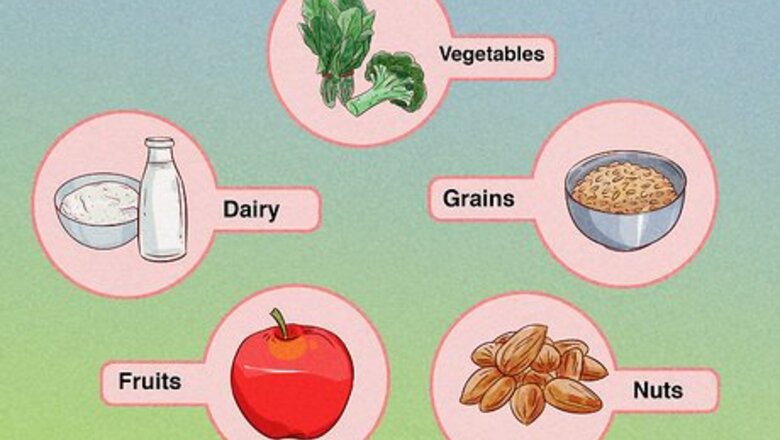
views
Following a Healthy Diet
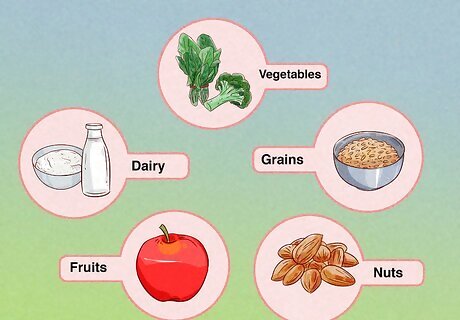
Consume an extra 450 to 500 calories daily. This is roughly the equivalent of a small meal or a couple of extra snacks daily. These extra calories will allow your body to produce breast milk for your baby. Aim for a variety of foods from all of the food groups. The foods in your daily diet should include: Vegetables and beans. Aim for 7 and 1/2 daily servings. A serving is 1/2 cup (120 g) of cooked or raw veggies, or 1/2 cup (120 g) of cooked beans. Fruit. Get 2 servings daily. A serving is 1 medium-sized piece of fruit, 1/2 cup (120 g) of chopped canned or fresh fruit, or 30 g (1.1 oz) of dried fruit. Grains. Aim for 9 servings of grains daily. A serving is 1 slice of bread, 1/2 cup (120 g) of cooked rice or pasta, or 2/3 cup (170 g) of breakfast cereal. Nuts, seeds, and legumes. Get 2 and 1/2 servings daily. A serving is 1/3 cup (30 g) of unsalted nuts or seeds, or 2 tablespoons (30 g) of nut paste. Dairy alternatives. Consume 2 and 1/2 servings daily. A serving is 1 cup (250 mL) of non-dairy milk, 3/4 cup (200 g) of calcium-fortified soy yogurt, or 2 slices (40 g) of non-dairy cheese. Oils and fats. Include 2 daily servings. A serving is 2 teaspoons (10 g) of a non-dairy spread or vegetable oil.
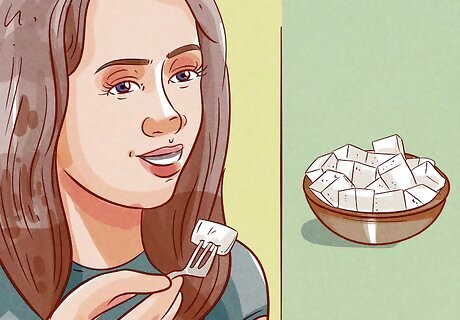
Include protein–rich vegan foods. Protein is an important nutrient for breastmilk production and your and your baby's health in general. Make sure that you eat at least 2 daily servings of a protein-rich food. Some good options include: Tofu Beans Lentils Soy-based meat replacement products Nuts and seeds
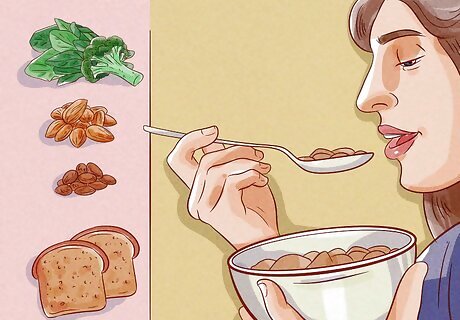
Eat iron-rich vegan foods. Iron helps build red blood cells, transports other nutrients to vital organs, and helps your baby to grow at a normal rate. Meat and eggs are rich in iron, but there are excellent vegan sources of iron as well. Include 2 to 3 servings of iron-rich foods throughout the day. Some good sources of iron include: Beans Fortified cereals and oatmeal Dark green leafy veggies, such as spinach, kale, and collard greens Dried fruit Nuts and seeds Whole wheat bread
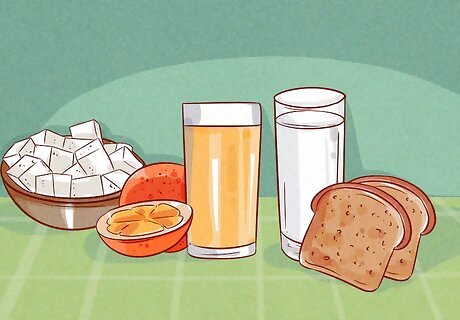
Drink and eat foods that contain calcium. Calcium will help your baby build strong bones and teeth. You also need calcium for healthy bones and teeth, so make sure to get at least 3 servings daily of calcium-rich foods. Some good calcium-rich food options include: Calcium-fortified juice, such as orange or grape Calcium-fortified almond, soy, rice, coconut, cashew, or oat milk Leafy greens, such as kale, swiss chard, and collard greens White and wheat bread Dried fruit Calcium-fortified tofuTip: Make sure that you vary your daily food choices. This will help to ensure that you get all of the nutrients you need and it will also help to expose your infant to a variety of flavors.
Supplementing Your Diet
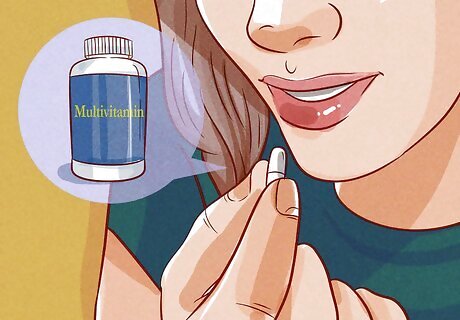
Include a daily multivitamin to get all of your basic nutrients. Taking a daily multivitamin is good insurance for you and your baby. This will help to ensure that your body is getting all of the required nutrients it needs to function properly and that your breastmilk contains everything your baby needs to grow up healthy. Look for a multivitamin meant for breastfeeding mothers, or continue to take your prenatal vitamins. Check with your doctor if you are not sure what type of vitamin is best for you. They may be able to recommend or prescribe a multivitamin to meet your nutritional needs.
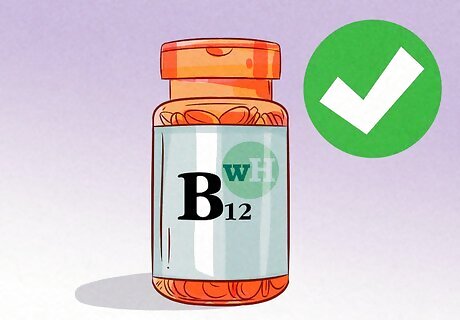
Take a vitamin B12 supplement every day. Vitamin B12 plays a large part in the development of your baby's brain, but it is usually only found in animal sources, such as meat, eggs, and dairy. You can get vitamin B12 from vegan fortified foods, such as soy milk and cereal. Or, you can take a daily multivitamin or B12 supplement, which is preferable to ensure that you do not become deficient in vitamin B12. The recommended daily intake of vitamin B12 for lactating mothers is 2.8 micrograms.
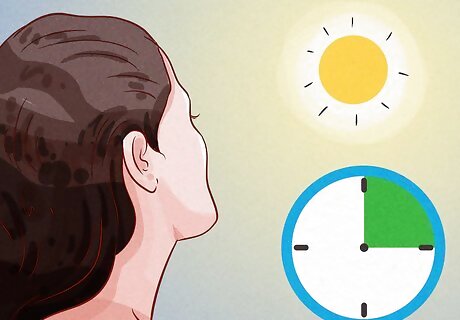
Take a vitamin D supplement or go outside in the sunlight. Vitamin D helps your body absorb calcium. During the winter months, it's best to take a vitamin D supplement. But when the weather is warm, you can get enough vitamin D simply by spending time in the sun each day. The recommended daily intake of vitamin D for lactating women is 600 IU (15 micrograms).Tip: If you want to allow your body to make its own vitamin D, go for a walk on a sunny day or sit outside without sunscreen on for 10 to 15 minutes.
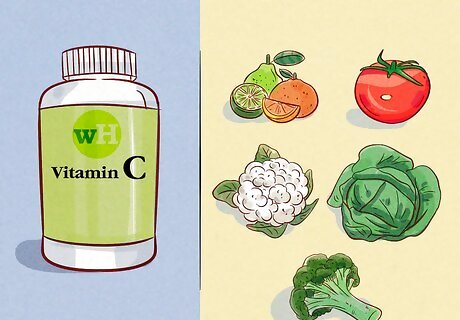
Increase your vitamin C intake to roughly 120 mg a day. Vitamin C is a water-soluble vitamin, which means that it is not stored in the body for very long. Your vitamin C needs increase while you are breastfeeding, so you may want to add a vitamin C supplement or consume more vitamin C-rich foods. You can take a vitamin C supplement or eat more vitamin C rich foods like: Citrus fruits like oranges, lemons, and grapefruit Bell peppers Potatoes Tomatoes Cantaloupe Cauliflower Cabbage Kiwi Broccoli Strawberries
Taking Other Precautions
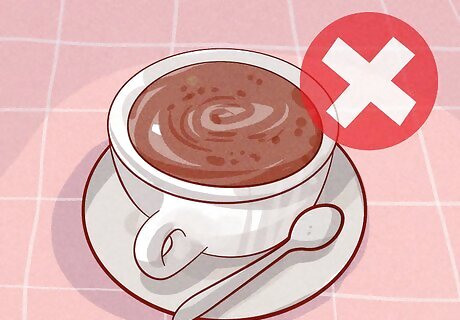
Cut back to 300 mg of caffeine daily or avoid caffeine. If too much caffeine gets into your breast milk, this can make your baby irritable and interfere with their sleep. Lactating mothers can safely consume a moderate amount of caffeine each day, but some mothers choose to avoid it because they notice that their babies are sensitive to it. If you do decide to consume caffeine while you are breastfeeding, limit yourself to no more than 300 mg (16 to 24 fl oz (470 to 710 mL)) of caffeine daily. Keep in mind that there are varying levels of caffeine depending on the beverage. For example, 1 cup (240 mL) of coffee has about 100-150 mg of caffeine, while 1 cup (240 mL) of black tea has about 25 to 50 mg of caffeine.
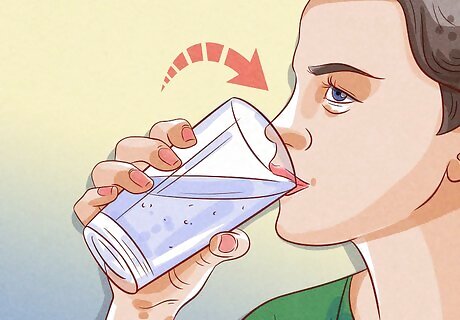
Drink plenty of water daily to stay hydrated. Making breastmilk also requires that you drink plenty of fluids, and water is your best option for staying hydrated. Aim for at least eight 8 fl oz (240 mL) of water daily. If you feel thirsty or notice that your urine looks dark, drink more water.Tip: Pour yourself a glass of water before each feeding and drink it while your baby nurses.
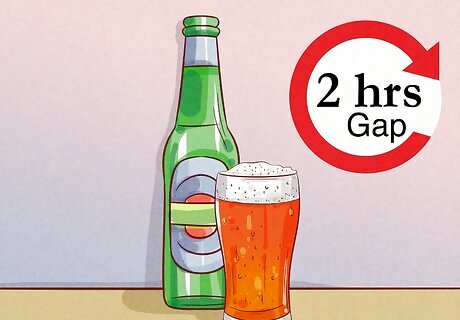
Wait for alcohol to completely clear your system before breastfeeding. It's okay to drink in moderation while you are breastfeeding, but you need to be careful about timing your drinks. It takes about 2 hours for each alcoholic beverage to clear your system, so if you have a drink, you'll need to wait 2 hours before you can safely breastfeed your baby again. For example, if you drink a beer at 6:00pm, then you will need to wait until 8:00pm to feed your baby. Try breastfeeding your baby right before you have a drink. This way, your baby will be fed while the alcohol to clears from your system.
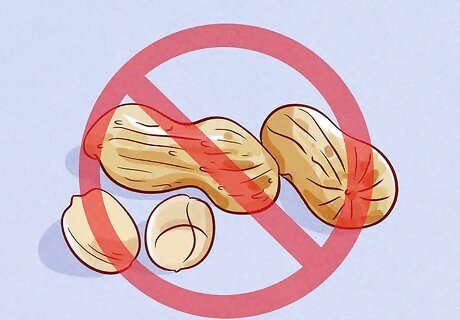
Watch for any possible food sensitivities in your baby. If your baby seems irritable, develops a rash, congestion, or diarrhea after a feeding, then you might consider if something you are eating might be causing the problem. Your baby might have an allergy or sensitivity to something you ate. Try eliminating any potentially irritating foods to see if it helps. Foods that commonly cause issues for some babies include: Soy Corn Wheat Peanuts












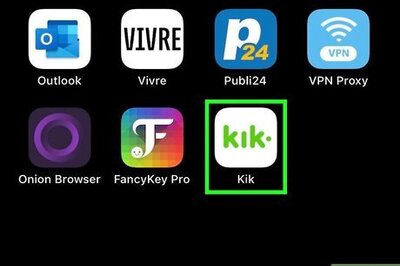






Comments
0 comment